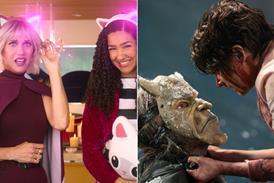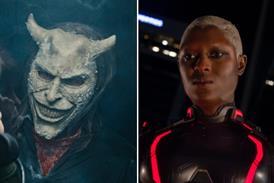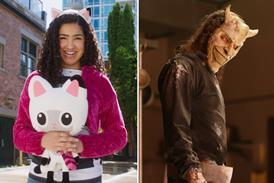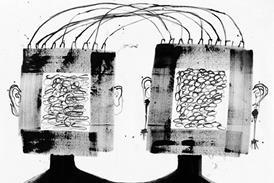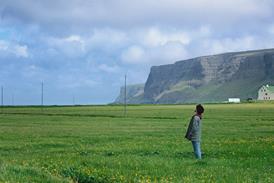Ryan Reynolds and Hugh Jackman team-up proves underwhelming as Deadpool takes its place in the MCU
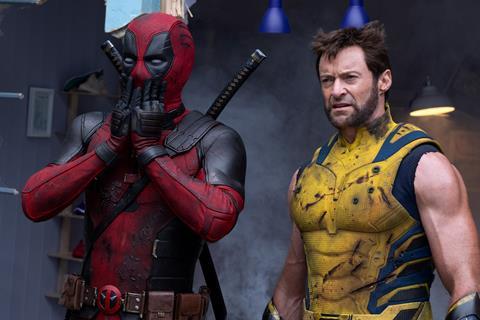
Dir: Shawn Levy. US. 2024. 128mins
The secret to the success of the Deadpool films is that, beneath their snarky surface, they are actually shamelessly sentimental pictures, the smart-aleck superhero hiding his sensitive side underneath foul language and a snotty attitude. Deadpool & Wolverine embraces its corniness even more aggressively than its predecessors, practically aiming for tearjerker territory in its story of feuding characters who, deep down, are just trying to prove that they matter.
Reynolds and Jackman are an amusing oil-and-vinegar combo
This third instalment — the first in the franchise since Disney acquired Fox — finds Ryan Reynolds’ mouthy Wade Wilson finally officially joining the Marvel Cinematic University, an auspicious occasion that, naturally, he and the film treat with cheeky mockery. Hugh Jackman demonstrates again what a fine Wolverine he is but this comic-book pairing ultimately underwhelms, resulting in some touching moments and some anarchic humour in a picture otherwise dragged down by convoluted multiverse logistics and drab fan service.
Opening globally on July 26, Deadpool & Wolverine hopes to reverse the recent trend of disappointing MCU grosses. Reynolds and Jackman provide ample commercial firepower, and the first two Deadpool pictures collected roughly $1.5 billion worldwide. It has been six years since Deadpool 2 and seven years since Logan ($619 million) which, at the time, was billed as Jackman’s final appearance as the Adamantium-fortified X-Man. Strong box office seems assured.
Wade Wilson (Reynolds) has decided to stop being Deadpool, wanting a normal life and hoping to win back his girlfriend Vanessa (Morena Baccarin). But when he meets Mr. Paradox (Matthew Macfadyen), an agent for the Time Variance Authority which monitors the universe’s different timelines, Deadpool learns his timeline will cease to exist in 72 hours unless he can locate Wolverine, who is the anchor of that timeline. Unfortunately, as anyone who saw Logan knows, Logan died, forcing Deadpool to team up with a Wolverine from another timeline (Jackman) — who, he quickly discovers, was not heroic and, in fact, caused great harm.
Flaunting graphic violence and crude humour, the Fox-backed Deadpool pictures thumbed their nose at Disney’s far-more-respectable and family-friendly Marvel films. That mischievous tone is still evident in Deadpool & Wolverine, with Reynolds (who produced and co-wrote the screenplay) and director Shawn Levy working hard to ensure that this sequel remains as edgy as its predecessors, despite now being part of the MCU. (The jibing starts with the opening Marvel title card, Deadpool gleefully mimicking the familiar Marvel theme music.)
But as much as Deadpool & Wolverine satirises Marvel from within, this sequel falters as it tries to juggle its competing ambitions. On the one hand, the film wants to be an MCU-sized spectacle featuring epic fights not only between Deadpool and Wolverine, but between them and myriad foes. But it also aspires to be a rollicking takedown of comic-book cinema as well as a sincere examination of flawed heroes seeking redemption. For all of Deadpool & Wolverine’s use of cheesy 1980s pop songs, the film is, at its core, an earnest story about the need to belong — a belief that, no matter your past mistakes, you can still be a good person. The picture may laugh at those songs’ cringey emotional exuberance but, really, the filmmakers want us to take those sentiments seriously.
There are some surprisingly moving sequences — mostly courtesy of Jackman, who taps into the same mournful register that dominated Logan — but they barely have room to breathe in a sequel so frantically stuffed with one-liners, cameos from Marvel characters past and present, and the increasingly convoluted explanations regarding how the multiverse operates. (A shaved-head Emma Corrin is nicely villainous, if a bit underutilised, as Cassandra Nova, the ruler of a timeline purgatory who holds the key to Deadpool saving his world.) One of Deadpool & Wolverine’s best comedic bits involves Deadpool’s faux-impassioned plea for Marvel to stop doing films built around the multiverse – but the cutting remark does not make up for the fact that we are watching one such picture.
Reynolds continues to relish Deadpool’s rampant sarcasm, although the character does have a few tender scenes as well. The zingers are as ubiquitous as the bloodshed, but neither the quips nor the knowingly over-the-top fight scenes are as lethal as in the earlier pictures, and the film’s wisecracking tone is undercut by the baggage of having to adhere to the MCU’s ungainly overarching narrative. (A cursory knowledge of the Marvel series Loki will help one’s understanding of Deadpool & Wolverine’s plot.)
Reynolds and Jackman are an amusing oil-and-vinegar combo, and the new film honours Logan’s melancholy farewell to Wolverine. But what was always so fun about Deadpool was that he flouted the conventions of superhero cinema. In Deadpool & Wolverine, Marvel’s misfit has to play nice — or, at least, a little nicer — in order to fit into that bigger universe. But when did Deadpool ever want to fit in?
Production companies: Kevin Feige Productions, Maximum Effort, 21 Laps Entertainment
Worldwide distribution: Disney
Producers: Ryan Reynolds, Shawn Levy, Kevin Feige, Lauren Shuler Donner
Screenplay: Ryan Reynolds & Rhett Reese & Paul Wernick & Zeb Wells & Shawn Levy
Cinematography: George Richmond
Production design: Raymond Chan
Editing: Dean Zimmerman, Shane Reid
Music: Rob Simonsen
Main cast: Ryan Reynolds, Hugh Jackman, Emma Corrin, Morena Baccarin, Rob Delaney, Leslie Uggams, Karan Soni, Matthew Macfadyen




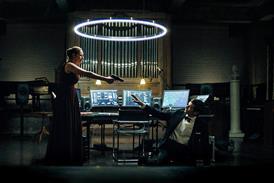
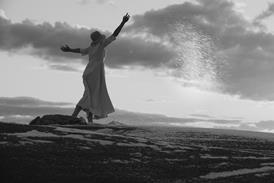
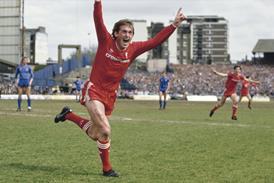
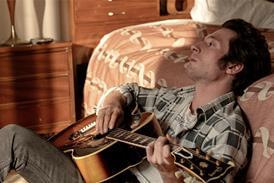

![[Clockwise from top left]: 'The Voice Of Hind Rajab', 'A House Of Dynamite', 'Jay Kelly', 'After The Hunt', 'The Smashing Machine'](https://d1nslcd7m2225b.cloudfront.net/Pictures/274x183/1/7/0/1459170_veniceawards_837515.jpg)


